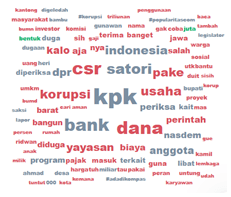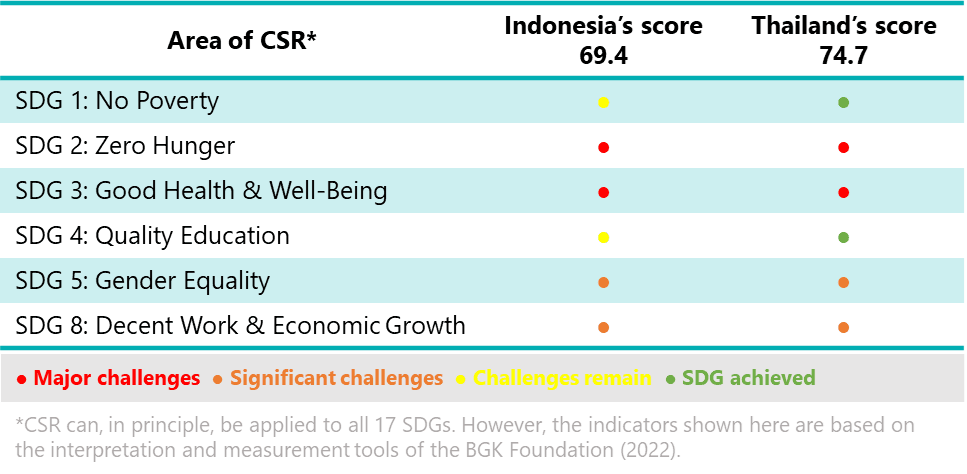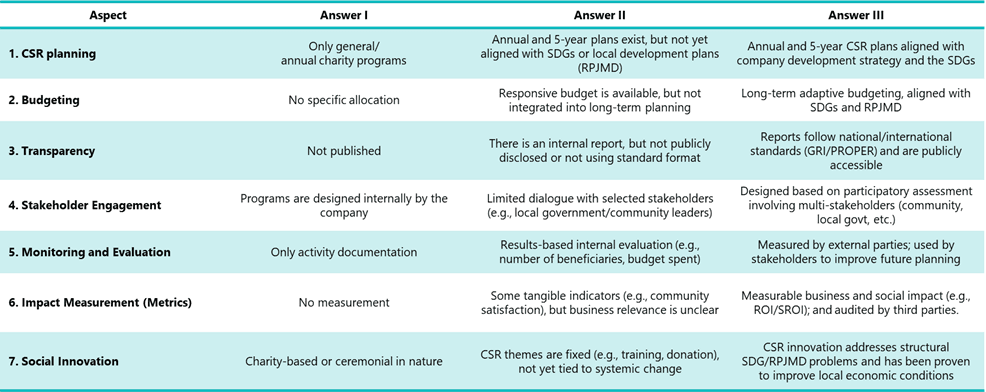What Gets Measured Isn’t Always Managed: Time to Fix Your CSR


94% of publicly listed companies in Indonesia are now fulfilling their CSR obligations — and for that, congratulations are in order. As reported by IDX earlier this year, most companies have submitted sustainability reports as mandated by POJK No. 51/2017, detailing social efforts from scholarships to disaster relief.
But here comes the uncomfortable follow-up: how good is the quality? How transparent are the reports? And most importantly — are these programs actually making an impact?
We Hand Out Awards, But Are We Measuring Substance?
In Indonesia, CSR is not just a responsibility — it’s a full-blown celebration. Each year, dozens of awards are handed out with fanfare: from independent bodies to national media outlets, and even recognitions from local governments. With so many trophies being distributed, one might assume CSR practices in Indonesia are world-class. But the data suggests otherwise.
An earlier study cited by the ASEAN CSR Network (2016) found that Thailand ranked highest in CSR implementation quality, scoring 56.8 out of 100, followed by Singapore (48.8). Indonesia, despite all the accolades, scored just 48.4 — barely ahead of Malaysia (47.7). While the study is admittedly dated, and no comprehensive regional update has been published since, the findings still mirror current realities.
More recently, Indonesia’s average CSR disclosure rate stood at just 38%, according to the BGK Foundation (2023) — a clear sign that while CSR programs may be running, they’re rarely communicated with transparency. Worse still, Bahruddin (2025) notes that CSR in Indonesia has long been susceptible to politicization and misuse, a pattern that has persisted since the early 2000s. And public perception reflects that fatigue.
See also: CSR Indonesia at a Crossroads
Our sentiment analysis of social media platform X from January to April 2025 found that 98% of CSR-related conversations are negative (see Figure 1), largely centered on corruption, elite control, and empty symbolism. Clearly, the public is no longer interested in CSR as theater. They’re demanding CSR that delivers.

Figure 1. CSR word clouds (Jan-Apr 2025)
Why CSR Impact Still Misses the Mark?
While a majority of Indonesian companies have submitted their sustainability reports in line with regulatory obligations, many of these reports still require significant improvement — particularly in the area of responsible and measurable reporting. According to officials at the Indonesia Stock Exchange, including its Director of Trading and Member Regulation, Irvan Susandy, the reports may fulfill formal requirements, but their content often lacks rigorous calculation and standard frameworks for evaluating outcomes. In short, companies may be reporting activities, but not necessarily results.
This measurement gap becomes even more evident when placed in a regional context. Of course, comparing Indonesia directly to other countries isn’t always fair — especially given the vastly different PESTEL conditions (Political, Economic, Social, Technological, Environmental, and Legal). Still, valuable lessons can be drawn. A recent study from Universitas Andalas (2025) benchmarked CSR disclosure practices between Indonesia and Thailand, highlighting three major structural gaps:
Although some observers continue to downplay CSR’s role in achieving SDGs — arguing that its contribution is too minor to be meaningful — such claims overlook empirical progress. Thailand, the top SDG performer in ASEAN according to the Sustainable Development Report 2024, has already achieved SDG 1 (No Poverty) and SDG 4 (Quality Education). This wasn’t the result of coincidence, but rather coordinated effort: government, corporations, and civil society aligning their CSR initiatives with targeted national development priorities. Thailand is not a rival in this context — it's a reference point. And, let’s be honest, those who still dismiss its model often haven’t looked at the actual data (see Figure 2).

Figure 2. CSR Implementation within the SDGs Framework in the Sustainable Development Report 2024*
A Deep-Dive into Thailand: What Can We Copy?
Despite Indonesia’s head start in mandating sustainability reports through POJK No. 51/2017, it is Thailand that has emerged as the regional frontrunner in aligning corporate social responsibility (CSR) with the Sustainable Development Goals (SDGs).
The key difference lies in regulatory specificity and institutional alignment. Since 2022, Thailand’s Securities and Exchange Commission (SEC) has required all listed companies to submit ESG disclosures through the Form 56-1 One Report, a standardized mechanism that explicitly encourages integration with GRI Standards and SDG-linked performance.
This is further reinforced by operational tools like the UNDP SDG Guidebook for Thai Listed Companies (2023), which helps businesses translate CSR initiatives into measurable contributions toward national development goals.
The impact of this ecosystem is measurable: 86% of Thai companies use GRI standards, and 90% explicitly align their disclosures with the SDGs. In comparison, Indonesia lags slightly behind, with 80% GRI adoption and only 86% SDG alignment (PwC, 2023). While these differences may appear incremental, they reveal a deeper institutional gap.
In Thailand, CSR is increasingly treated as a strategic function — often integrated at the board level and embedded into long-term planning (Universitas Andalas, 2025). Moreover, Thailand’s Stock Exchange (SET) is proactively raising the bar: it has conducted a series of SDG-focused workshops to educate listed companies about the economic risks and opportunities from climate change, promoting better alignment with international disclosure standards.
Time to Hold Up the Mirror
We’ve explored how CSR in Indonesia stacks up — the ambitions, the blind spots, and the best practices we can learn from peers like Thailand. But now, it’s your turn to reflect. This isn’t just about benchmarking others. It’s about asking, where is your company right now in its CSR journey?
To guide this reflection, take a close look at the CSR maturity table (see Figure 3) below. It covers seven key aspects — from planning and budgeting, to transparency, stakeholder engagement, and impact. For each row, choose the column that best represents your current practice.

Figure 3. CSR maturity table
This isn’t a test — it’s a mirror. And every transformation begins with a clear view of where you stand.
📍 In the next article, I’ll help you interpret your results and explore what your answers reveal about your CSR maturity.
References
ASEAN CSR Network. (2016, December 14). Riset: Temukan Kualitas CSR Perusahaan Indonesia Rendah. https://www.asean-csr-network.org/c/news-a-resources/media-coverage/920-riset-temukan-kualitas-csr-perusahaan-indonesia-rendah
Bahruddin. (2025, April 13). Buruk Rupa Kebaikan. Kompas.id. https://www.kompas.id/artikel/buruk-rupa-kebaikan?open_from=Tagar_Page&loc=hard_paywall
IDX. (2025, January 10). Perkuat Transparansi Data ESG, BEI Luncurkan ESG Reporting untuk Perusahaan Tercatat. Indonesia Stock Exchange. https://www.idx.co.id/id/berita/siaran-pers/2306
Kompas.id. (2024, August 3). Laporan keberlanjutan perusahaan di bursa perlu banyak perbaikan. https://www.kompas.id/baca/ekonomi/2024/08/03/97-persen-perusahaan-tercatat-bursa-punya-laporan-keberlanjutan?loc=hard_paywall
PricewaterhouseCoopers (PwC). (2023). Sustainability Counts II: State of sustainability reporting in Asia Pacific. https://www.pwc.com/gx/en/issues/esg/asia-pac-esg/sustainability-counts-2023.pdf
Putri, L. J., Andrianto, F., & Hamidi, M. (2025). Analysis of ESG disclosure in ASEAN countries: The influence of board CSR orientation, board CSR strategy, GRI and national cultural dimensions. Jurnal Ekonomi, Manajemen, dan Sosial Indonesia, 6(3), 283–298. https://dinastirev.org/JEMSI/article/view/3942/2100
Sachs, J., Lafortune, G., Fuller, G., & Schmidt-Traub, G. (2024). Sustainable Development Report 2024: The SDGs and the UN Summit of the Future – Includes the SDG Index and Dashboards. Dublin University Press. https://s3.amazonaws.com/sustainabledevelopment.report/2024/sustainable-development-report-2024.pdf
Securities and Exchange Commission, Thailand. (2022). Form 56-1 one report handbook. https://www.sec.or.th/EN/Documents/Handbooks/handbooks-form-56-1.pdf
United Nations Development Programme (UNDP) Thailand. (2023). SDG guidebook for Thai listed companies. https://www.undp.org/sites/g/files/zskgke326/files/2023-10/231025_aw_sdg_guidebook_for_thai_listed_companies4.pdf